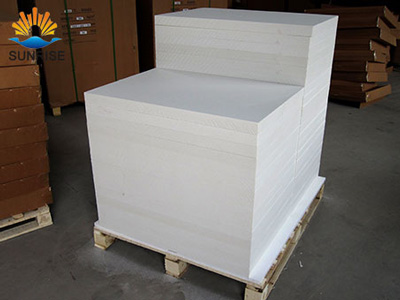Refractory knowledge
- The impact of Sino-US trade war on the re
- The origin and development of refractory
- How to Bake High Alumina Bricks
- Application of Lightweight Clay Brick in
- Introduction to the production process of
- Lightweight fire brick performance
- Improve the service life of chrome corund
- The production process of Refractory Bric
Hot Products
The impact of Sino-US trade war on the refractory industry
The Sino-US trade war is a hot topic in the near future. First, the United States has adopted trade restrictions on China. On February 27th, the US Department of Commerce announced that it would impose an anti-dumping duty of 48.64% to 106.09% on Chinese aluminum foil products manufacturers and a countervailing duty of 17.14% to 80.97%. On March 9, Trump officially signed a tariff order, and imposed tariffs of 25% and 10% on imported steel and aluminum, respectively. On March 22nd, the Trump administration announced that it would impose a $50 billion tariff on Chinese goods due to intellectual property infringement and impose investment restrictions. Then China counterattacked US trade. Earlier, China has expressed its position and attitude on many occasions. In short, six words can be clearly stated: no matter what matters, no fear of things! China does not want to fight trade with anyone, but if someone does not force us to fight, we will not be afraid, and the second will not hide. If the US insists on playing, we will accompany them to the end and take all necessary measures to resolutely defend their legitimate rights and interests. The Ministry of Commerce of the People's Republic of China has issued a list of suspension concessions for the US import of steel and aluminum products 232 measures and solicited public opinions. It is proposed to impose tariffs on some products imported from the United States to balance the United States' tariffs on imported steel and aluminum products. The losses caused by the interests of the Chinese side. The list tentatively includes 7 categories and 128 tax items. According to 2017 statistics, it involves US exports of about US$3 billion to China.
The impact of the Sino-US trade war on the refractory industry, close view, in 2017, the total export of refractory raw materials was 6.389 million tons, an increase of 22.78%. The export trade volume was 1.802 billion US dollars, a year-on-year increase of 16.42. In 2017, the total export of refractory products nationwide was 1,694,600 tons, an increase of 3.29% year-on-year, and the export trade volume was 1.274 billion US dollars, an increase of 15.52%. It is understood that refractory exports to 66 countries and regions, mainly South Korea, Japan, India, Vietnam, the United States ranked slightly behind. It can be seen that the United States is not a major trading country of China's refractory materials. Therefore, the direct impact of the Sino-US trade war on the refractory industry is not large. Far-sighted refractory industry downstream steel, building materials, smelting, chemical and other industries are the focus of this trade war, it is bound to cause a series of indirect effects on refractory enterprises. It is well known that the steel industry is a major downstream enterprise of refractory materials. The steel trade has become a key point of Sino-US trade friction in recent years, and there is a strong competitive relationship. The Sino-US trade war was the first to take the steel industry. However, since the international financial crisis, China’s steel exports to the United States have fallen sharply under the series of US steel trade protection measures. The tariff on steel and aluminum has a limited blow to China, with only a few percentage points of steel exports to the United States. The United States is no longer a major trading country for Chinese steel. China has been going to production capacity, so the impact on the steel industry is smaller than it was a few years ago. The target of this tariff is the aviation, modern railway, new energy vehicles and high-tech products. These are the main downstream customers of the steel industry. In the long run, there is an indirect impact on the steel industry, and little impact on the refractory industry.
In summary, the industry believes that because China's main market for refractory materials and steel consumption is still the domestic market, foreign markets are mostly in Japan, South Korea, India and other countries, and domestic steel companies have significantly increased their anti-risk ability after the supply-side reform. The impact of this trade sanctions on the refractory industry and the steel industry is limited and controllable. Considering that the trade war will further increase China's openness, increase domestic demand, and speed up the construction of the Belt and Road, we do not have to worry about the short-term weakness of the steel market. This Sino-US trade war, China's termination of tax cuts to the United States is agricultural and sideline products. The US taxation field is mostly high-tech products. From the breakdown of these products, the steel industry will be somewhat affected, and the impact of refractory materials will be negligible. As for the cross-border e-commerce business that refractory materials have been promoting transformation and upgrading in recent years, most of the business targets are South Korea, Japan, India, Vietnam, the European Union and other countries. So don't worry about being affected too much. In fact, many scholars also believe that the Sino-US trade war is not aimed at pure trade protection, but to increase the bargaining power for negotiations. Since the real purpose is still to take the lead, the possibility of a full-scale trade war is not high. In the future, it may be more common that there is a partial and gradual trade friction between China and the United States.









